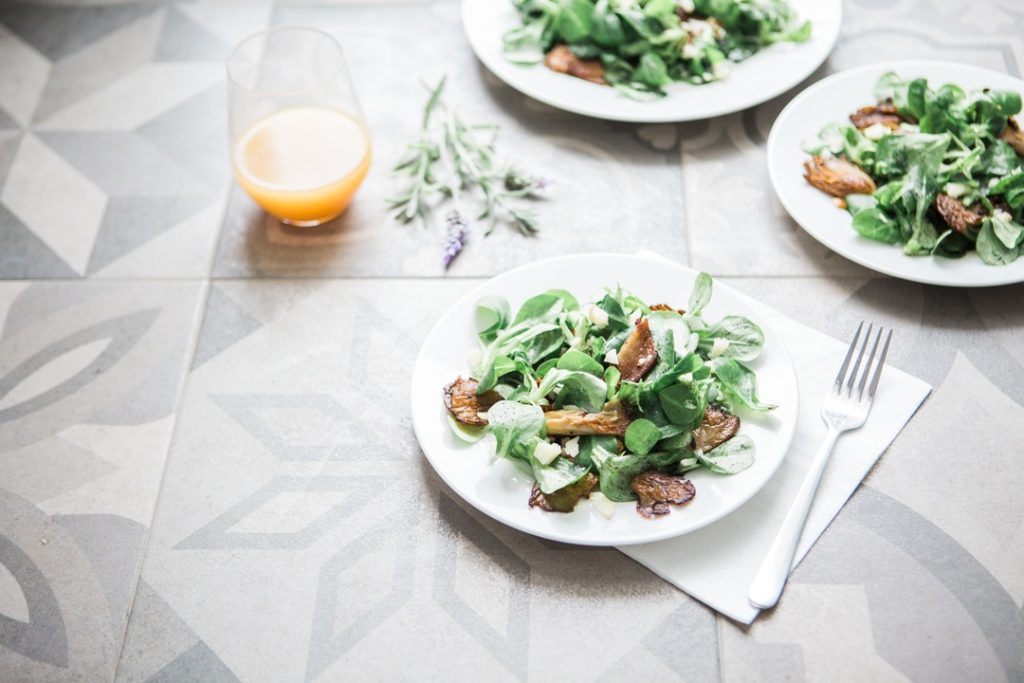We would like to explain to you the difference between not eating a food due to belief and not eating it due to health risks with many examples.
Foods Not Eaten Due to Faith: In this case, the food itself may be generally healthy and nutritious, but certain religious or cultural beliefs prohibit the consumption of this food. These prohibitions are often based on religious texts, traditions, or specific moral and ethical rules. The purpose of such prohibitions is usually to obey a religious command, to achieve spiritual purification, to show belonging to a particular community, or to express respect for animals. In this case, the food is not directly harmful to health, but it can lead to nutrient deficiencies in the long term if the diet is not planned in a balanced way.
Examples:
Pork in Islam: Pork is forbidden in Islam and is not consumed by Muslims. While pork is a nutritious source of protein, the reason for this prohibition is religious belief, not because pork itself is inherently unhealthy. However, it is important for Muslims who do not consume pork to turn to other sources to ensure adequate protein intake.
Beef in Hinduism: Cows are considered sacred in Hinduism, and for this reason, many Hindus do not eat beef. Beef is a food rich in iron and vitamin B12. It is important for Hindus who do not consume beef to get enough of these nutrients from other sources (e.g. dairy products, legumes, green leafy vegetables).
Non-Kosher Seafood in Judaism: According to Jewish religious law (Kashrut), shellfish (shrimp, oysters, crab, etc.) and fish without scales and fins (e.g. catfish) are not kosher and are not consumed by Jews. Although these seafood are rich in some vitamins and minerals, the reason for this ban is religious belief.
Meat Ban in Some Buddhists: In some sects of Buddhism and by some Buddhist individuals, the consumption of all types of meat is prohibited. The basis of this ban is the principle of not harming living beings and compassion. Buddhists who do not consume meat should be careful to consume enough protein, iron, and vitamin B12.
Certain Foods in Rastafarianism: While the consumption of natural and unprocessed foods called “ital” is encouraged in Rastafarianism, some types of meat (especially pork), processed foods, salt and some drinks are prohibited. The basis of these prohibitions is the adoption of a natural lifestyle and certain religious beliefs.
Foods Not Eaten Due to Disease Risks: In this case, the food itself is potentially harmful and can cause various health problems, diseases or poisoning if consumed. The reason for this prohibition is that the food has spoiled, contains toxins, causes allergic reactions or carries a risk of certain diseases.
Examples:
Spoiled Dairy Products: Harmful bacteria can grow in dairy products such as milk, yogurt or cheese that have been kept in the refrigerator for a long time or have not been stored under appropriate conditions. These bacteria can cause food poisoning. Therefore, it is a health necessity not to consume spoiled dairy products.
Raw or Undercooked Poultry: Raw or undercooked poultry, such as chicken and turkey, can contain bacteria such as Salmonella or Campylobacter. These bacteria can cause serious stomach upset, vomiting, diarrhea, and fever in people. Therefore, it is important to cook poultry thoroughly and not consume it raw.
Certain Mushrooms: Many types of mushrooms that grow in nature are poisonous and can cause serious poisoning, liver damage, and even death if consumed. Therefore, it is vital not to consume mushrooms that are not known to be edible.
Foods Containing Allergens: Some foods such as nuts, peanuts, milk, eggs, and seafood can cause allergic reactions in some people. These reactions can range from mild rashes to shortness of breath and anaphylactic shock. Therefore, people with allergies should not consume these foods.
Fish Containing Mercury: Large predatory fish (such as swordfish, shark, and king mackerel) can contain high levels of mercury. High levels of mercury consumption can lead to nervous system problems. For this reason, it is recommended that especially pregnant women and children consume these types of fish in limited amounts or not at all.

In summary:
The main reason for not eating foods due to belief is a religious or cultural command and the food itself is generally healthy. In this case, the point to be considered is to prevent possible nutritional deficiencies by creating a balanced diet instead of the prohibited foods.
The main reason for not eating foods due to disease risks is that the food is potentially harmful. In this case, the aim is to prevent health problems and poisoning.
In both cases, food selection is important, but the motivation and consequences are different. While belief-based prohibitions are usually related to the individual’s spiritual and cultural identity, health-based prohibitions are directly aimed at protecting physical well-being.
The Two Faces of Taste at the Top of Cielo: Faith or Health?
As Cielo Roof Top Bar Restaurant, overlooking the enchanting view of Montenegro, we not only offer our guests a unique experience, but also observe the different meanings of food in our lives. Sometimes, deep beliefs lie behind a meal not coming to our plate, while sometimes there is a concern for protecting our health. Let’s examine these two different reasons with examples in Cielo‘s atmosphere.
Reflection of Faith on the Table: Deep Meanings in Our Choices
Religious and cultural beliefs that have been going on for centuries have been an important factor shaping our tables. While hosting guests from different cultures and beliefs at Cielo, we witness the deep meanings behind not choosing certain foods. These choices usually carry sublime purposes such as obeying an order, spiritual purification or strengthening the bond of community.
Faith-Based Food Selections from Cielo’s Perspective:
Halal Options: As Cielo, we respect the beliefs of our Muslim guests and offer special options prepared in accordance with halal standards. For example, we have kebab varieties and other delicacies prepared with carefully selected halal meats on our menu. Pork is not included in our menu due to faith. This choice is not because the meat itself is unhealthy, but rather because of a religious necessity.
Vegetarian and Vegan Alternatives: We have a wide range of vegetarian and vegan options for our guests with different beliefs and lifestyles. While some beliefs prioritize respect for all living things, others prefer to stay away from animal products during certain periods. Cielo‘s vegetable-based flavors are prepared with care for these sensitivities. For example, our special appetizers and main courses prepared with seasonal vegetables offer both delicious and suitable alternatives for these preferences.
Kosher Options: We take care to meet some special requests for our Jewish guests prepared with ingredients that comply with kosher dietary rules. Non-kosher foods such as shellfish are not included in our menu. This choice is an indication of respect for religious rules.
Health Priority: Choices Made to Take Good Care of Our Body.
While enjoying delicious meals at Cielo, we also observe that our guests prioritize their health. Avoiding certain foods sometimes aims to protect our bodies from possible risks. These choices are shaped by a wide range of health concerns, from allergies to food poisoning.
Health-Based Food Choices from Cielo’s Perspective:
Fresh and Safe Ingredients: At Cielo, we prioritize the health of our guests and take care to use the freshest, highest quality ingredients. We do not accept any stale or spoiled products into our kitchen. All of our ingredients, from our seafood to our meat varieties, are checked daily.
Allergen Information: By providing detailed information about allergen contents in our menu, we help our guests with allergies make safe choices. We are sensitive about common allergens such as nuts, milk, and gluten and offer alternative options. For example, we have delicious alternatives specially prepared for our gluten-free guests.
Cooking Methods: We prefer healthy cooking methods when preparing our meals. Instead of frying, we both preserve the flavor and reduce the fat content with methods such as grilling, baking or steaming. We pay attention to these principles especially when preparing our seafood and meat varieties.
Seasonal and Fresh Products: The meals we prepare with fresh vegetables and fruits that we procure in season are both more delicious and richer in terms of nutritional value. In this way, we can offer our guests healthy and balanced options.
As Cielo Roof Top Bar Restaurant, we respect the different reasons behind our guests’ food choices. Whether they stay away from certain foods as a requirement of their beliefs or make certain preferences to protect their health, our aim is always to offer them the highest quality and most reliable flavors. We are waiting for you at Cielo for an experience that cares for both your beliefs and your health, accompanied by the unique view of Montenegro. Remember, there is a story and a meaning behind every meal. We continue to create unforgettable moments by valuing these meanings.
📍 Visit us at Royal Blue Resort & Residences in Tivat and elevate your dining experience today!
📞 Book your table now and taste the future of fine dining at Cielo!

